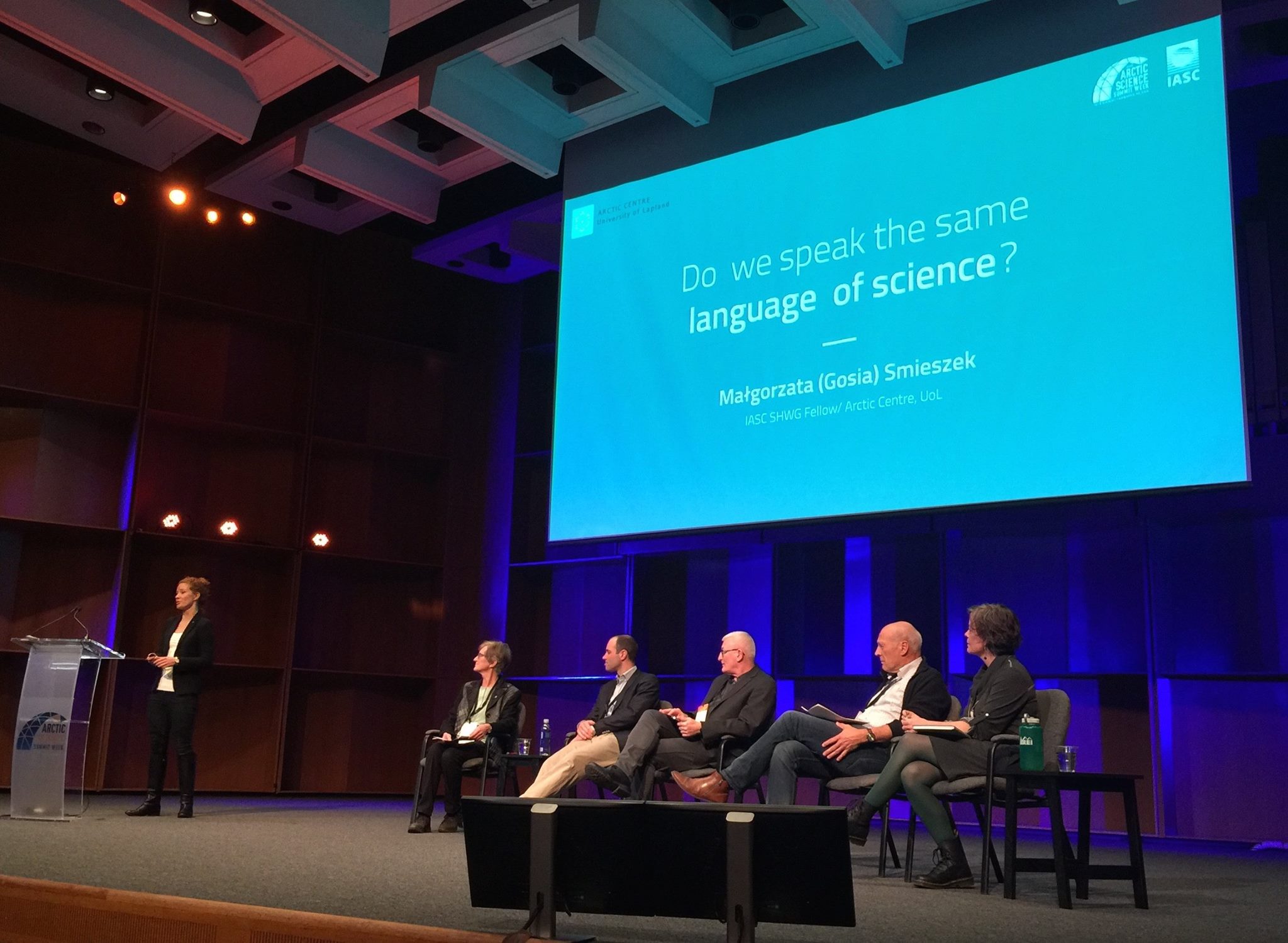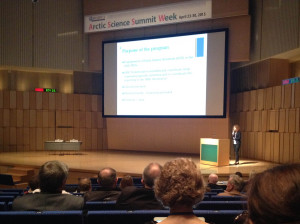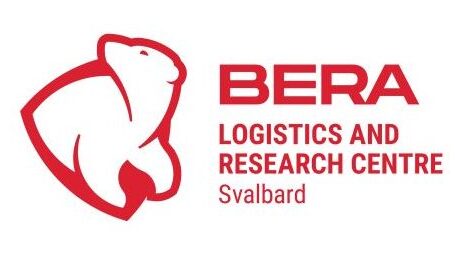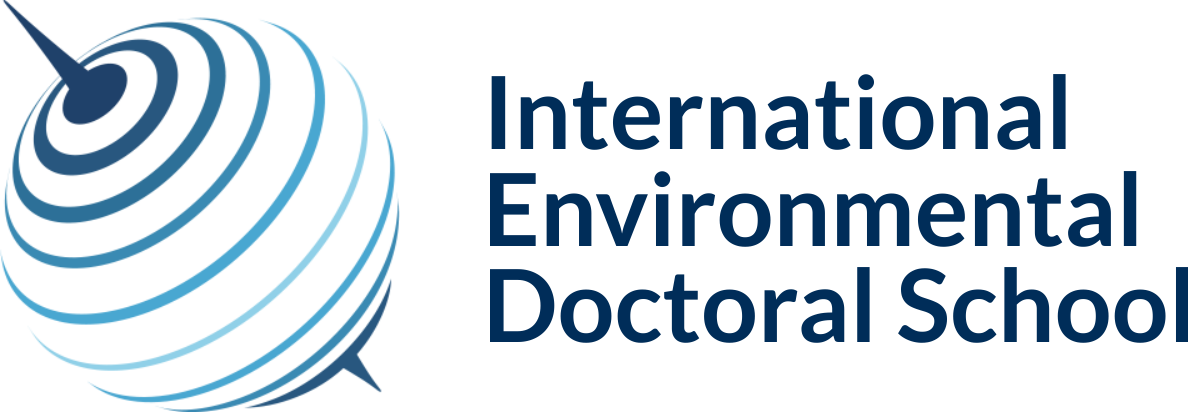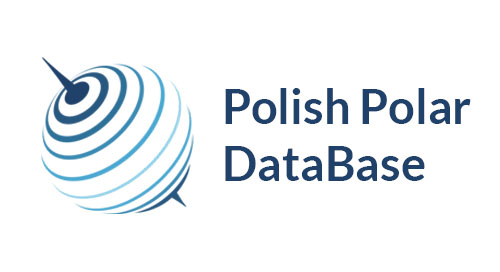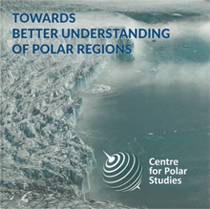Under the Memorandum of Understanding between the Centre for Polar Studies, the Polish Polar Consortium and the International Arctic Science Committee, from January 2015 CSP hosts the Early Career Support section of the IASC Secretariat.
The IASC Fellowship Program was established in 2013 to engage Early Career Scientists (PhD candidates, postdoctoral researchers) in the work of the IASC Working Groups. Detailed information about the Fellowship Program is available here. Coordinator of the IASC Fellowships and Early Career Support: Dr. Maja Lisowska.
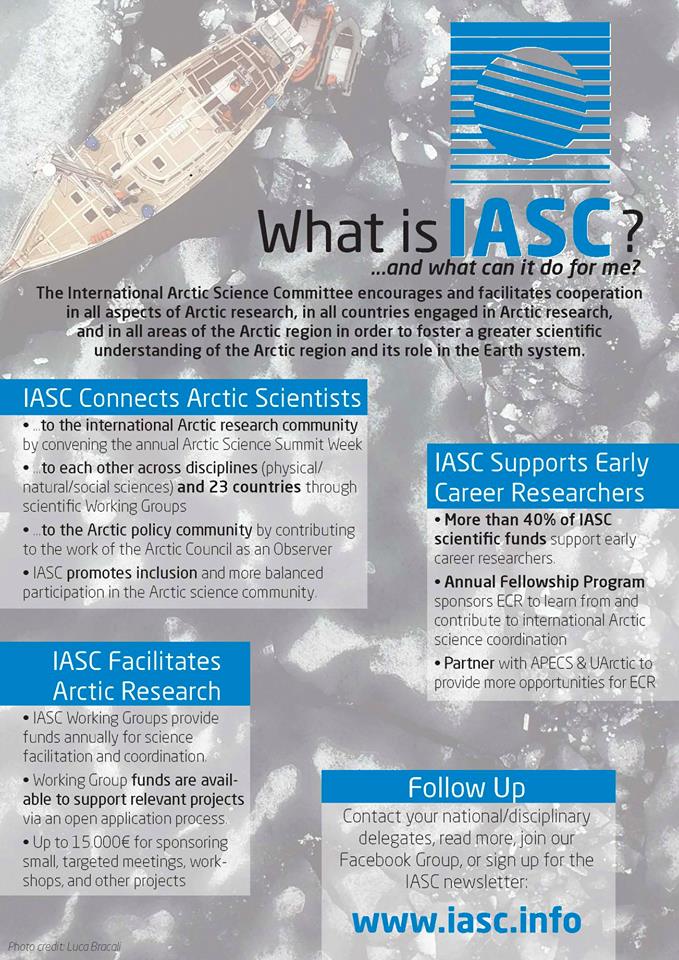
IASC Fellows 2017-2018:
Atmosphere WG:
Manisha Ganeshan, Universities Space Research Association, USA
Cryosphere WG:
Shridhar Jawak, National Centre For Antarctic & Ocean Research, Earth System Science Organization (ESSO), Ministry of Earth Sciences, Govt. of India, India
Marine WG:
Thomas Armitage, Centre for Polar Observation and Modelling, University College London, UK / NASA Jet Propulsion Laboratory, USA
Social and Human WG:
Violetta Gassiy, Kuban State University, Russian Federation
Terrestrial WG:
Alevtina Evgrafova, University of Bern, Switzerland
IASC Fellowship Program 2017 – application call open
The International Arctic Science Committee (IASC), in cooperation with theAssociation of Polar Early Career Scientists (APECS), invites Early Career Scientists (ECS) to apply for the IASC Fellowship Program 2017.
Detailed information about requirements and application process are available at the APECS website.
On-line application form is available at: https://goo.gl/forms/E3tJoBMbIFqp5Oy72.
For more information about the IASC Fellowship Program, visit http://iasc.info/capacity-building/fellowship.
Application deadline: 13:00 GMT, 14 November 2016.
IASC Fellowship Program positively evaluated during the IASC Review
The IASC Fellowship Program gained positive opinions during the recent IASC Review. The Review Committee proposed some actions in order to better use the potential of the program.
Below are the guidelines:
“There is general agreement that the IASC Fellowship system is working well, but some improvements are required to give IASC an even higher profile among Early Career Scientists. In part, this can be achieved through the development of a communications strategy to improve IASC’s visibility. Improved communication is entirely consistent with the recommendations of ICARP-III. The Review Committee recommends:
- Establishment of direct communication channels with IASC Fellows to clarify and extend IASC expectations for Fellows’ participation, including:
- presentations (e. g., AGU) regarding fellowship work, outcomes, benefits, and future objectives/contributions, as well as a final report on individual fellowship outcomes for publication on IASC web site;
- extended contributions to non-traditional social media outlets (e.g., YouTube), to describe and promote Fellowship experience and the IASC mission, as encouragement for others to participate in IASC activities; and
- advice from IASC’s Early Career Scientists and Fellows to the Secretariat on how to improve the public face of IASC and attract more Early Career Scientists.
- Engagement with WG members and IASC Fellows directly, individually, and continually to ensure Fellows understand their roles in Working Groups, WG officers are employing Fellows appropriately, and WG members understand their potential roles and responsibilities as mentors for Early Career Scientists and IASC Fellows.”
- Full Review Report text is available here.
IASC Fellows at the ASSW 2016, Fairbanks, Alaska

IASC Fellows 2016. From left: Maja Lisowska, IASC Fellowship Program Coordinator, Allison Fong, Justiina Dahl, Alek Petty, Paul Zieger, Scott Zolkos. Photo: IASC
During the IASC Working Group Common Session, the newly elected Fellows officially started their term. During the following days of the ASSW, the Fellows participated in the meetings of their WGs, observed the IASC Council meeting and took part in numerous other seminars and meetings.
The ‘older’ Fellows were actively involved in the organization of the ASSW 2016. E.g., Małgorzata Śmieszek proposed and coordinated a half-day symposium “Do we speak the same language of science?”. She chaired the session together with another Fellow, Josefine Lenz. The event proved very successfull and the organizers gained positive feedback from the panelists and from the audience.
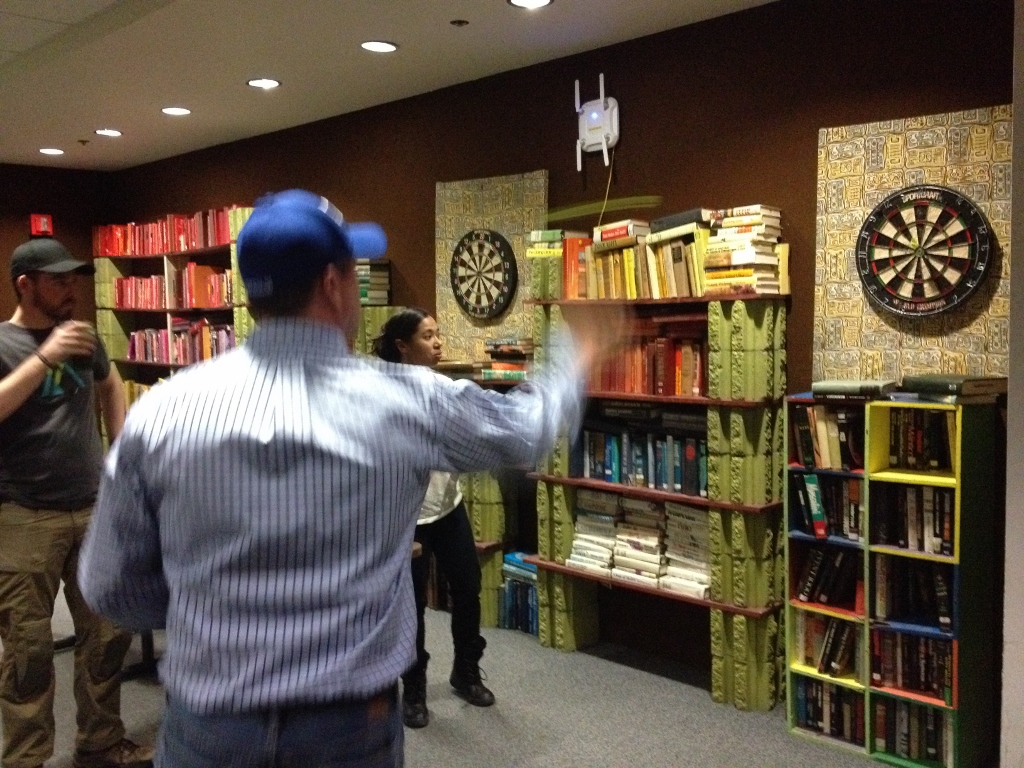
After the hard work… Photo: M. Lisowska
Despite the tight schedule, the Fellows met together and share their experience with younger collegues. They even managed to find time for some non-scientific activities…
Activities of IASC Fellows in 2015 – article in the IASC Bulletin 2016
IASC Bulletin (pdf) – link
Congratulations to the new IASC Fellows!
The IASC Fellows 2016.2017 are:
- Atmosphere WG: Paul Zieger, Stockholm University, Sweden
- Cryosphere WG: Alek Petty, NASA Goddard Space Flight Center / University of Maryland, USA
- Marine WG: Allison Fong, Alfred Wegener Institute, Germany
- Social and Human WG: Justiina Dahl, European University Institute, Italy
- Terrestrial WG: Scott Zolkos, University of Alberta, Canada
During the application process of the 2016/2017 edition, we received 77 applications from 16 countries, including Poland.
The names of successful candidates will be announced by the end of the week.
Application call open!
The International Arctic Science Committee (IASC), in cooperation with theAssociation of Polar Early Career Scientists (APECS), invites Early Career Scientists (ECS) to apply for the IASC Fellowship Program 2017.
Detailed information is available here.
Please send your applications to info@apecs.is.
Deadline: 12:00 GMT, 15 November 2015.
New outline of the IASC Fellowship
Discussion about the Fellowship Program which started during the ASSW 2015 in Toyama, resulted in applying some modifications to the Program outline.
The main change concerned the duration of the fellowship. According to the new regulations, the total duration will be 1 + 2 years. After the first year, the Fellow, in cooperation with the Working Group leadership, may stay in the WG for up to two years. Financial support is provided only for the first year.
New regulations also give the WGChairs a stronger advisory voice during the selection process.
IASC Fellowship Program at the ASSW 2015
IASC Fellows actively participated in the Arctic Science Summit Week 2015 in Toyama: they assisted the Secretaries in taking minutes during the Working Group Meetings and contributed meritorically to the discussions. Many of them also presented their scientific projects during the conference part of the ASSW. The current state of the Program was presented by Małgorzata Śmieszek , the Social and Human WG Fellow, at the Working Group Common Meeting.
After a series of discucssions, the Fellows proposed modifications of the IASC Fellowship Program Terms of Reference. The proposal is being consulted by the Working Group Leaderships.
Maja Lisowska, coordinator of the Program, presented its outline during the APECS workshop.
Małgorzata Śmieszek during the IASC Working Group Common Meeting.
Second edition of the IASC Fellowshop Program
For the second edition of the IASC Fellowship Program, 95 applications from 17 countries were sent. The applications were reviewed by the Association of Polar Early Career Scientists (APECS), in cooperation with IASC Secretariat.
One Fellow per a Working Group, in total 5 persons, were selected. The list of all the Fellows is available here.




